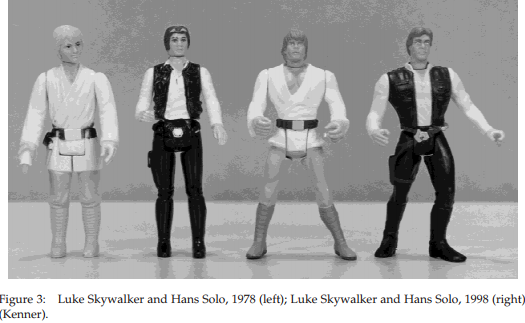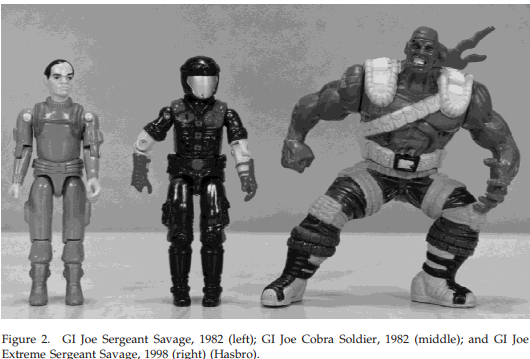The Quiet Body Image Pressure Facing Men In The Spotlight

By:
Hollywood is known for imposing ridiculous beauty standards on women. Male actors are also facing body-image pressure, an overlooked reality for men in this line of work.
It starts with the toys.
Research backs the idea that men in the spotlight are under more pressure than in the past to live up to a particular physical ideal. This is evident when you compare toy figures from the late 1970s with their counterparts 20 years later.
When the "Star Wars" franchise debuted in the late 1970s, the figures of Han Solo and Luke Skywalker were depicted as thin. By the late 1990s, the same characters were depicted as stronger, more cut, and more buff (this difference was highlighted in a 1999 paper in the International Journal of Eating Disorders).
 PSU - psu.edu
PSU - psu.edu
The study looked at a variety of other action figure toys as well. "On both visual inspection and anthropomorphic measurement, it appears that action figures today are consistently much more muscular than their predecessors," the researchers wrote. "Many modern figures display the physiques of advanced bodybuilders, and some display levels of muscularity far exceeding the outer limits of actual human attainment."
 PSU - psu.edu
PSU - psu.edu
How this affects actors.
 Flickr/vagueonthehow - flickr.com
Flickr/vagueonthehow - flickr.com
As male action figure standards have changed, so have expectations and demands for all men on screen. Four years ago, actor Jason Segel told David Letterman that he was forced to lose nearly 40 pounds to play Emily Blunt's fiancé in "The Five-Year Engagement," as Ron Meyer, the president of Universal Pictures, said Segel needed to look like someone Blunt would actually date.
"I was told that it had to be conceivable that Emily Blunt would ever choose me to be her husband," Segel said. "Which is fair."
Actors can also be harder on their bodies than many people realize. Last fall, "Orange Is the New Black" star and former body builder Matt McGorry told Yahoo Health that he was anxious about a shirtless dancing scene he was shooting for the Netflix series because he didn't want anyone to criticize his body.
"I remember the first shirtless scene I ever did on 'Orange,' I was obsessively dieting, and when I saw that scene before the show ever came out, I thought I had blown it," he said. "I was like, 'Oh no! I didn't get as lean as I could have.'"
McGorry isn't the only actor to feel self-conscious about how he looks on screen. Last year, actor Chris Pratt told Men's Health U.K. that he had major body image issues while playing the fun-loving Andy on "Parks and Recreation."
At one point during filming, Pratt decided that he wanted his character to be fat, so he started eating a lot and gaining weight. When he reached nearly 300 pounds, he started feeling awful about himself.
"When I was fat and unhappy, the only moments of respite I got were when I was eating," Pratt told Men's Health U.K. "I felt great shoveling food down my neck and totally negative in between. Now mealtimes are sometimes lame, because that's the way it can be when you're eating healthily. But all the time between meals, I feel great."
Pratt famously had to whip his body into shape for his part in "Guardians of the Galaxy," losing 60 pounds in six months. He kept the weight off for his next hit film, "Jurassic World."
Getting fit for these roles came at a cost for the actor, though. He told GQ last year that he was more fun back when he was bigger and that his wife, Anna Faris, cannot cook for him the way she used to anymore.
